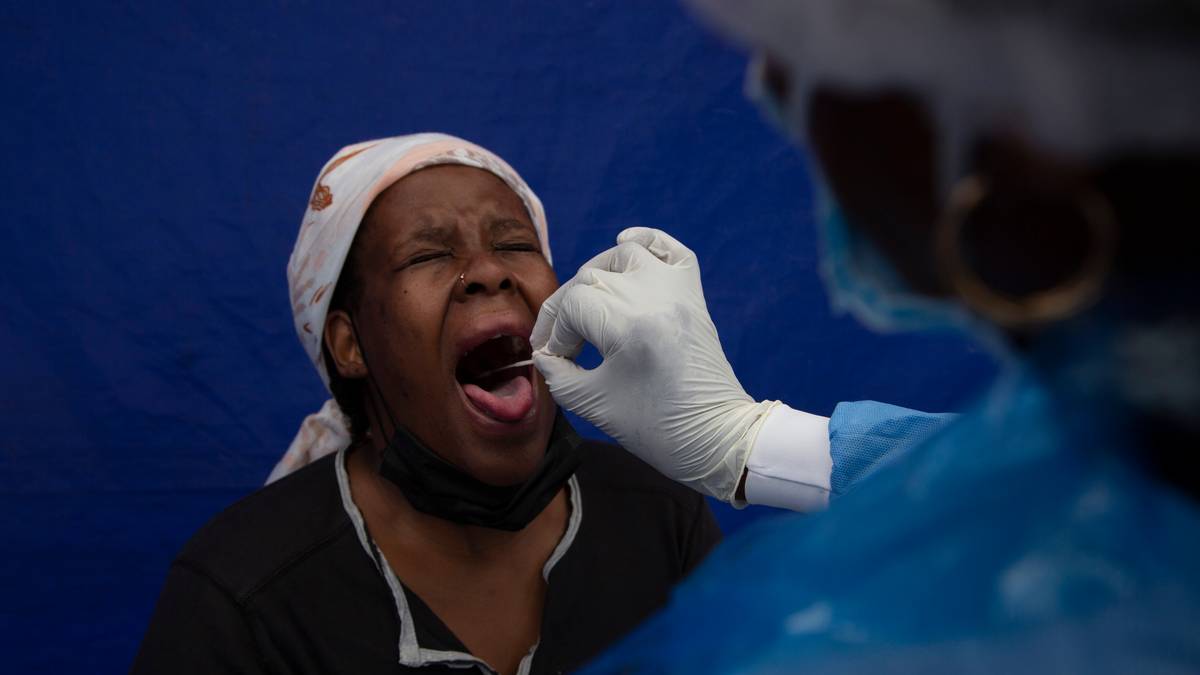This article is over a month old and may contain outdated advice from the authorities regarding coronary heart disease.
Stay up to date in NRK’s overview, or through FHIs nettsider.
–
A report from South African Institute of Infectious Diseases shows that only 30 percent of all those admitted with covid-19 in recent weeks have been seriously ill. That is less than half as many as during previous waves of infection.
The average length of stay for covid-19 patients is also significantly shorter, 2.8 days compared to 8 days earlier.
Only 3 percent of patients admitted to covid-19 in South Africa in recent weeks have died. During previous waves of infection, the proportion was around 20 percent.
– Still early
– As it now looks, almost everything indicates that the omicron variant gives milder disease, says the head of the South African Institute of Public Health, Willem Hanekom.
– But it is still early and we need final data. Hospitalizations and deaths often happen later, and we are still only two weeks into this wave, he warns.
The Norwegian Institute of Public Health has stated that for the time being it may indicate that the omicron variant is far more contagious, but it is not known how sick you become and what effect the vaccine has on the variant. At the same time, it has been warned that the total effect on the health care system may be greater, as more people are likely to become infected and ill.
FHI director Camilla Stoltenberg said on Wednesday that FHI expected to have more secure information within two weeks.
– Seems to handle the disease better
The South African doctor Unben Pillay has in recent weeks received several dozen corona-infected patients daily. He says he has not yet had to send any of them to hospital.
Pillay believes the omicron variant of the virus – which in recent weeks has spread rapidly in South Africa, causes mild illness and leads to fewer hospitalizations than the delta variant did.
– People seem to be able to cope with the disease at home. Most people recover during the isolation period of 10 to 14 days, he says.
This also applies to elderly patients and those with underlying health problems that increase the risk of serious disease from coronary heart disease, according to Pillay.
90 percent
Pillay practices in the province of Gauteng, which with 16 million inhabitants is South Africa’s most populous and includes the country’s largest city Johannesburg and the capital Pretoria.
In the first week of December, Gauteng experienced a 400 per cent increase in the number of new cases of infection, and the omicron variant accounted for 90 per cent of them.
While patients infected with the delta variant have low oxygen levels in their blood and have difficulty breathing, omicron-infected people have milder, flu-like symptoms such as coughing and pain in joints and muscles, says Pillay.
Financial Times wrote earlier this week about similar experiences from other doctors.
“My colleagues and I have all noticed how many patients drop out of oxygen therapy,” Dr. Fareed Abdullah, a researcher and infectious disease doctor, told the newspaper.
–


